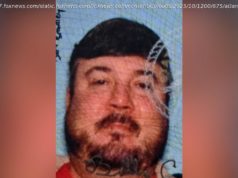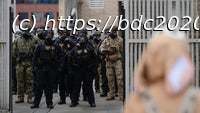The decision was prompted by Otto Warmbier’s death in June.
The Trump administration is expected Wednesday to publish new rules that would make it all but impossible for most Americans to visit North Korea.
The decision, which will be published in the Federal Register, comes after the death in June of Otto Warmbier, the 22-year-old University of Virginia student who was imprisoned by the communist state for more than a year and spent much of that time in a coma. The travel restrictions will go into effect 30 days after the official publication of the notice.
Under the new rules, the U. S. State Department declared all U. S. passports invalid for travel to North Korea with the exception of travel in the national interest and for journalists, members of the Red Cross, and for humanitarian work. Those who wish to go to North Korea must apply to the State Department for their passports to be validated.
“The Department of State has determined that the serious risk to United States nationals of arrest and long-term detention represents imminent danger to the physical safety of United States nationals traveling to and within the Democratic People’s Republic of Korea (DPRK) , ” the notice said.
Although the State Department previously warned U. S. citizens not to travel to the country, travel was never banned outright. In all, some 1,000 Americans are estimated to travel each year to the country—providing North Korea with a valuable source of revenue. But the risks are clear. Indeed, at least three U. S. citizens are still detained in North Korea. They are: Kim Dong-chul, 62, who was sentenced in April 2016 to 10 years of hard labor for spying; Kim Sang-duk, who was detained in April of this year; and Kim Hak-song, who was detained in May for “hostile acts.”
Kim Sang-duk and Kim Hak-song work as academics in North Korea. The Washington Post estimates there are as many as 100 Korean Americans living or working in the country at any time. Apart from them, the Post adds, some 25 U. S. humanitarian groups work in North Korea, and between 200 and 500 Korean Americans travel to the country each year—mostly for the reunification of families separated by the 1950-53 Korean War.
Critics of the new rules say the requirement that passports be validated for travel to North Korea is likely to be viewed with suspicion by a North Korean regime that is already skeptical of visitors from the U. S. They also say the U. S. rule sends a wrong signal to American allies in the region—that the U. S. is further retreating from East Asia.
But as Heather Nauert, the State Department spokeswoman said on July 25, the U. S. decision is being prompted by concerns for the safety of Americans following Warmbier’s death.
“It is not safe for Americans to go to North Korea. Let me remind you, we still have Americans who are being detained in North Korea, ” she said. “We don’ t want to see any more people go to North Korea and be detained, and that is why we put that travel ban in place.”






